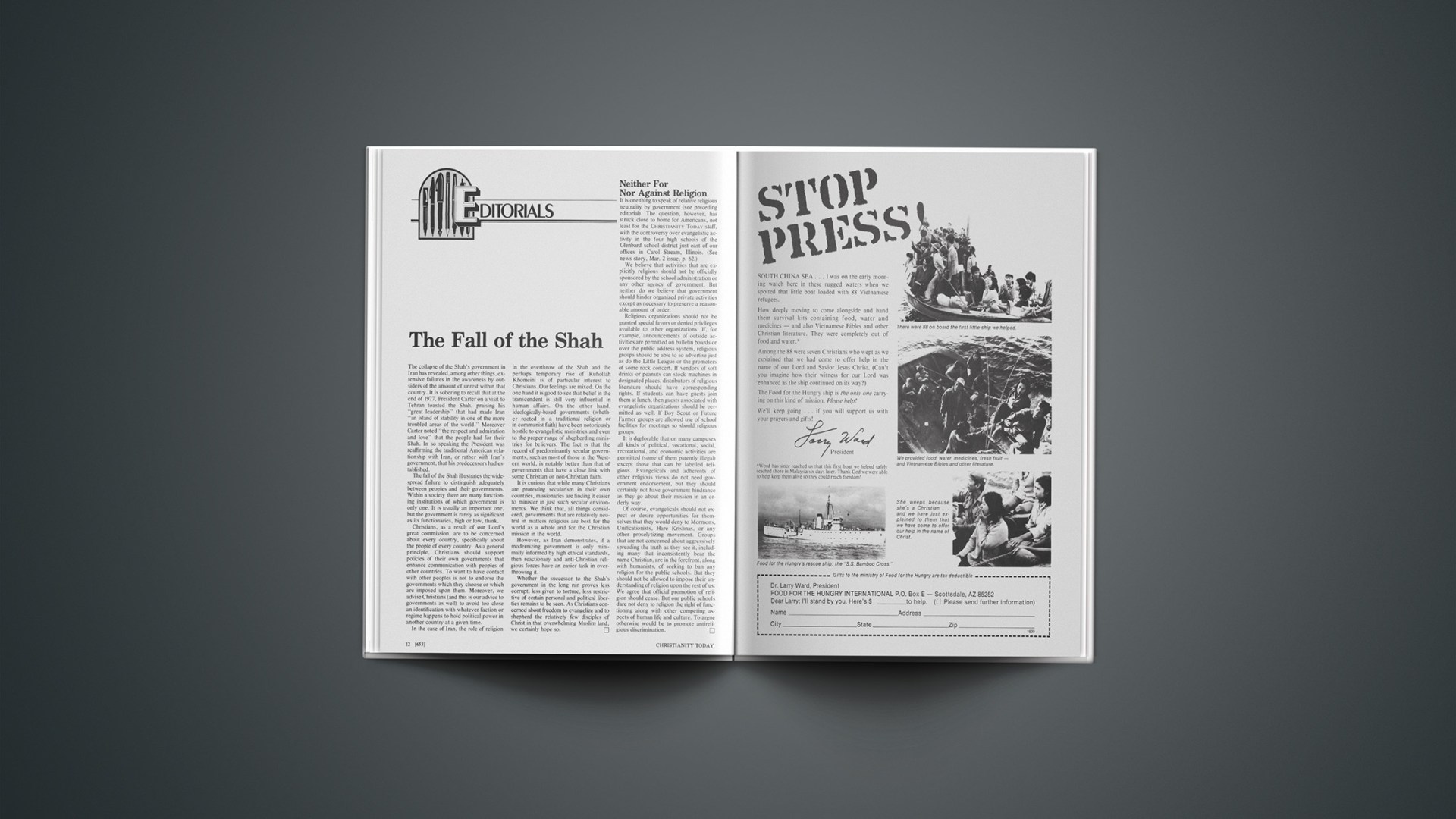It is one thing to speak of relative religious neutrality by government (see preceding editorial). The question, however, has struck close to home for Americans, not least for the CHRISTIANITY TODAY staff, with the controversy over evangelistic activity in the four high schools of the Glenbard school district just east of our offices in Carol Stream, Illinois. (See news story, Mar. 2 issue, p. 62.)
We believe that activities that are explicitly religious should not be officially sponsored by the school administration or any other agency of government. But neither do we believe that government should hinder organized private activities except as necessary to preserve a reasonable amount of order.
Religious organizations should not be granted special favors or denied privileges available to other organizations. If, for example, announcements of outside activities are permitted on bulletin boards or over the public address system, religious groups should be able to so advertise just as do the Little League or the promoters of some rock concert. If vendors of soft drinks or peanuts can stock machines in designated places, distributors of religious literature should have corresponding rights. If students can have guests join them at lunch, then guests associated with evangelistic organizations should be permitted as well. If Boy Scout or Future Farmer groups are allowed use of school facilities for meetings so should religious groups.
It is deplorable that on many campuses all kinds of political, vocational, social, recreational, and economic activities are permitted (some of them patently illegal) except those that can be labelled religious. Evangelicals and adherents of other religious views do not need government endorsement, but they should certainly not have government hindrance as they go about their mission in an orderly way.
Of course, evangelicals should not expect or desire opportunities for themselves that they would deny to Mormons, Unificationists, Hare Krishnas, or any other proselytizing movement. Groups that are not concerned about aggressively spreading the truth as they see it, including many that inconsistently bear the name Christian, are in the forefront, along with humanists, of seeking to ban any religion for the public schools. But they should not be allowed to impose their understanding of religion upon the rest of us. We agree that official promotion of religion should cease. But our public schools dare not deny to religion the right of functioning along with other competing aspects of human life and culture. To argue otherwise would be to promote antireligious discrimination.










